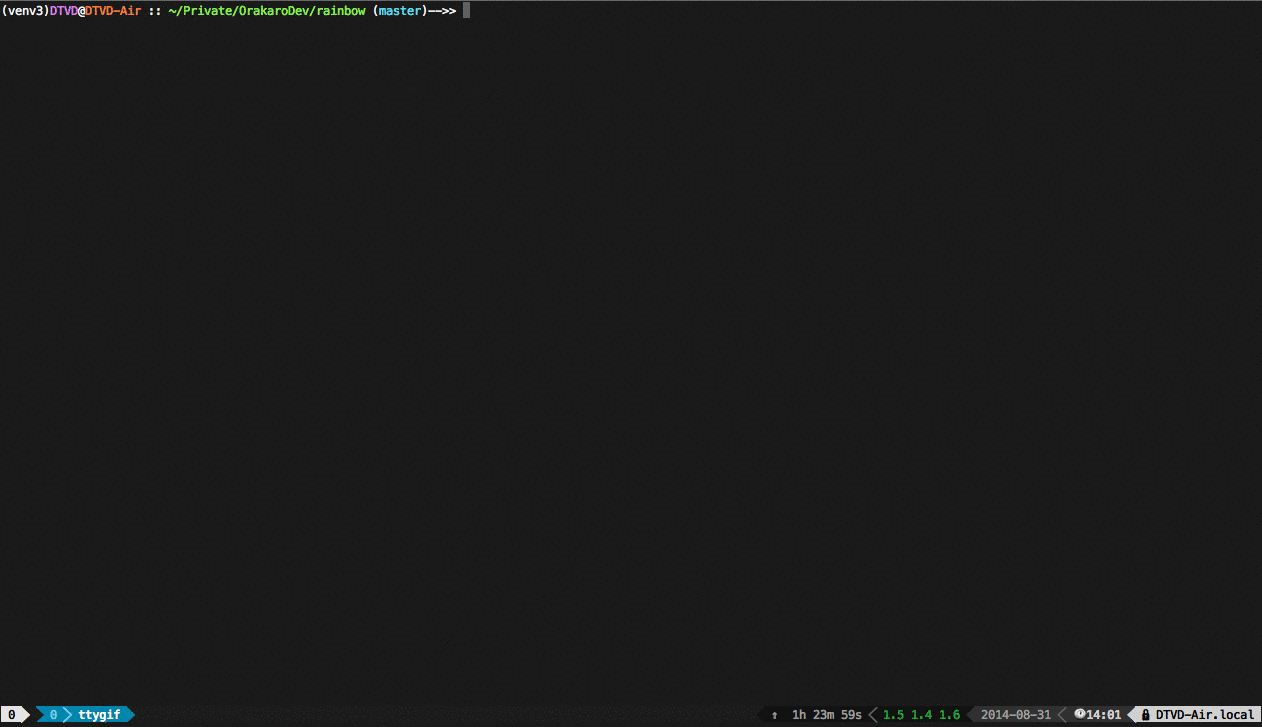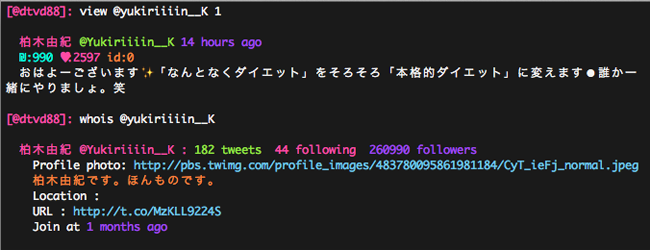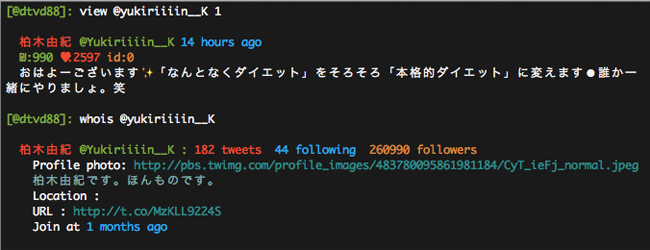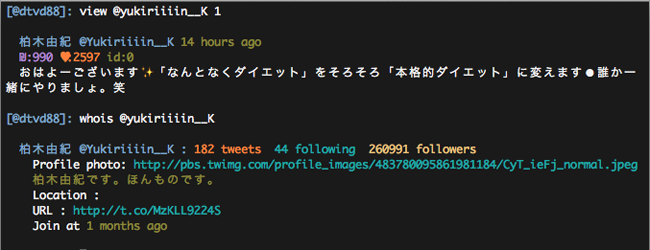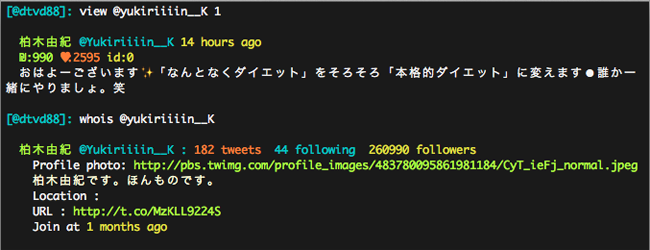

Terminal-based Twitter Client. Realtime tweetstream, compose, search , favorite … and much more fun directly from terminal.
This package is built on the top of Python Twitter Tool and Twitter API, can run on Python 2.7.x and 3.x .
Home page : http://www.rainbowstream.org/
Source code : https://github.com/DTVD/rainbowstream
You will need Python and pip (2.7.x or 3.x).
sudo pip install rainbowstream
# Python 3 users: sudo pip3 install rainbowstreamUse virtualenv
virtualenv venv
# Python 3 users : use -p to specify your Python 3 localtion as below
# virtualenv -p /usr/bin/python3 venv
source venv/bin/activate
pip install rainbowstreamIf you use Linux, you might need to install some packages if you haven't already. For debian-based distros, these can be installed with
sudo apt-get install python-dev libjpeg-dev libfreetype6 libfreetype6-dev zlib1g-devBesides, Mac OSX Maverick with Xcode 5.1 has a well-known clang unknown argument problem with
the Pillow package installation - a dependency of this app.
If you are in this case, I recommend taking a look at Issue #10 and let me know if this workaround doesn't work for you.
export ARCHFLAGS=-Wno-error=unused-command-line-argument-hard-error-in-futureIf installation in the quick way doesn't work:
sudo pip uninstall rainbowstream- use the virtualenv way above
- create an issue and provide:
- Your OS
- Your Python version
Just type
rainbowstreamand see your stream.
I shipped a feature which can display tweet's images directly on terminal. You can try it with:
rainbowstream -iot # Or rainbowstream --image-on-termYou also can change the config key IMAGE_ON_TERM to True inside the app
to enable above feature,
change IMAGE_SHIFT to set image's margin (relative to your terminal's width)
or IMAGE_MAX_HEIGHT to control max height of every image.
(see config management section).
In the first time you will be asked for authorization of Rainbow Stream app at Twitter. Just click the “Authorize access” button and paste PIN number to the terminal, the rainbow will start.
You might want to use rainbowstream via an HTTP/SOCKS proxy. Proxy settings are provided as follows:
rainbowstream --proxy-host localhost --proxy-port 1337 --proxy-type HTTP
# or using the short form:
rainbowstream -ph localhost -pp 1337 -pt HTTPBoth --proxy-port and --proxy-type can be omitted. In this case default
proxy port 8080 and default proxy type SOCKS5 are used.
While your personal stream is continued, you are also ready to tweet, search, reply, retweet… directly from console. Simply type “h” and hit the Enter key to see the help.
Input is in interactive mode. It means that you can use arrow key to move up and down history, tab-autocomplete or 2 tab to view available suggestion. Input history from previous run is available as well.
Available commands are listed in Read The Docs.
Rainbow Stream is shipped with some default themes.
You can either change theme by theme command or create your favorite one.
Theme’s screenshot:
- Monokai
- Solarized
- Tomorrow Night
- Larapaste
For detail information, see theme usage and customization.
Found a bug or a feature request ? Please create an issue or contact me at @dtvd88
If you want to build a runnable version yourself, follow these simple steps
Get your Twitter application’s API key and secret
Fork this repo and clone in your system.
Create a file
consumer.pyin rainbowstream folder with following content# Consumer information CONSUMER_KEY = 'APIKey' # Your Twitter application's API key CONSUMER_SECRET = 'APISecret' # Your Twitter application's API secret
Use pip to install in local
# cd to directory which contains setup.py (cloned directory) virtualenv venv # Python3 users: use -p to specify python3 source venv/bin/activate pip install -e . which rainbowstream # /this-directory/venv/bin/rainbowstream # Remove ~/.rainbow_oauth if exists rainbowstream # local version of rainbowstream
I appreciate any help and support. Feel free to fork and create a pull request. You will be listed as contributor.
Rainbow Stream are released under an MIT License. See LICENSE.txt for details
